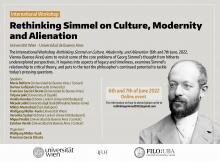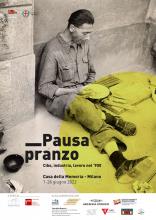CfP: Archiv für Sozialgeschichte: Right-Wing Extremism Since 1945
Discussions of right-wing populist and extremist politics and activities tend to pay little attention to the historic continuity of far-right thought and action. The far-right milieu is often considered as something alien, standing apart from society and its fundamental political culture. This tendency was even more pronounced in the GDR, which derived its political legitimacy from anti-fascism. Yet recent electoral campaigns across Europe reveal ever more clearly that there is a considerable pool of votes from which far-right, nationalist parties may draw.
CfP: Constructing and (Re)Presenting Cultural Heritage. Imperial, National, and International Constellations in Eastern Europe
What can be considered as cultural heritage is the result of not only a multitude of negotiations by a broad spectrum of actors that affect self-understanding as well as positioning in the world, but also of changing sociopolitical orders. In reflecting on this perspective, this workshop focuses on the multifaceted history of the cultural heritage of Eastern Europe.
CfP: Mobilization and unionization dynamics of platform workers
MOBILIZATION AND UNIONIZATION DYNAMICS OF PLATFORM WORKERS. A TRANSNATIONAL AND CROSS-SECTORAL APPROACH OF MOBILITY-RELATED ACTIVITIES
Editors :
* Fabien Brugière, Maître de conférences, Université de Strasbourg, laboratoire SAGE
* Donna Kesselman, Professor, Université Paris-Est Créteil, laboratoire IMAGER
* Jean Vandewattyne, Professor, Université de Mons, Service de Psychologie du travail
CfP: Power and Knowledge from the 18th Century to Today
Call for Papers
Rethinking Simmel on Culture, Modernity, and Alienation
The International Workshop Rethinking Simmel on Culture, Modernity, and Alienation (6th and 7th June, 2022, Vienna – Buenos Aires) aims to revisit some of the core problems of Georg Simmel’s thought from hitherto underexplored perspectives. It inquires into aspects of legacy and timeliness, examines Simmel’s relationship to critical theory, and puts to the test the philosopher’s continued potential to tackle today’s pressing questions.
Speakers
Pausa pranzo. Cibo, industria e lavoro nel 900
“Pausa pranzo. Cibo, industria e lavoro nel 900” a Milano
Dall’1 al 26 giugno la mostra sarà alla Casa della memoria per la Milano Design Week
CfP: Deindustrialization and Reindustrialization Re-Connected. Comparing Developments in the Global South and the Global North from the 1970s to the Present Day
Organizers:
Stefan Berger, Institute for Social Movements, Ruhr-Universität Bochum
Ulf Brunnbauer, Leibniz Institute for East and Southeast European Studies, Regensburg
Philipp Ther, Research Centre for the History of Transformations and East Central Europe, Universität Wien
Place: University of Vienna
Time: 31 May – 3 June 2023
CfP: Les âges du travail, du Moyen Âge à nos jours
Appel à communication : Les âges du travail, du Moyen Âge à nos jours
Colloque international, 17-18 novembre 2022, université Gustave Eiffel
Argumentaire
CfP: Art et travail
Marges n°37 – Appel à contributions
Journée d’études « Art & travail », le 29 octobre 2022



